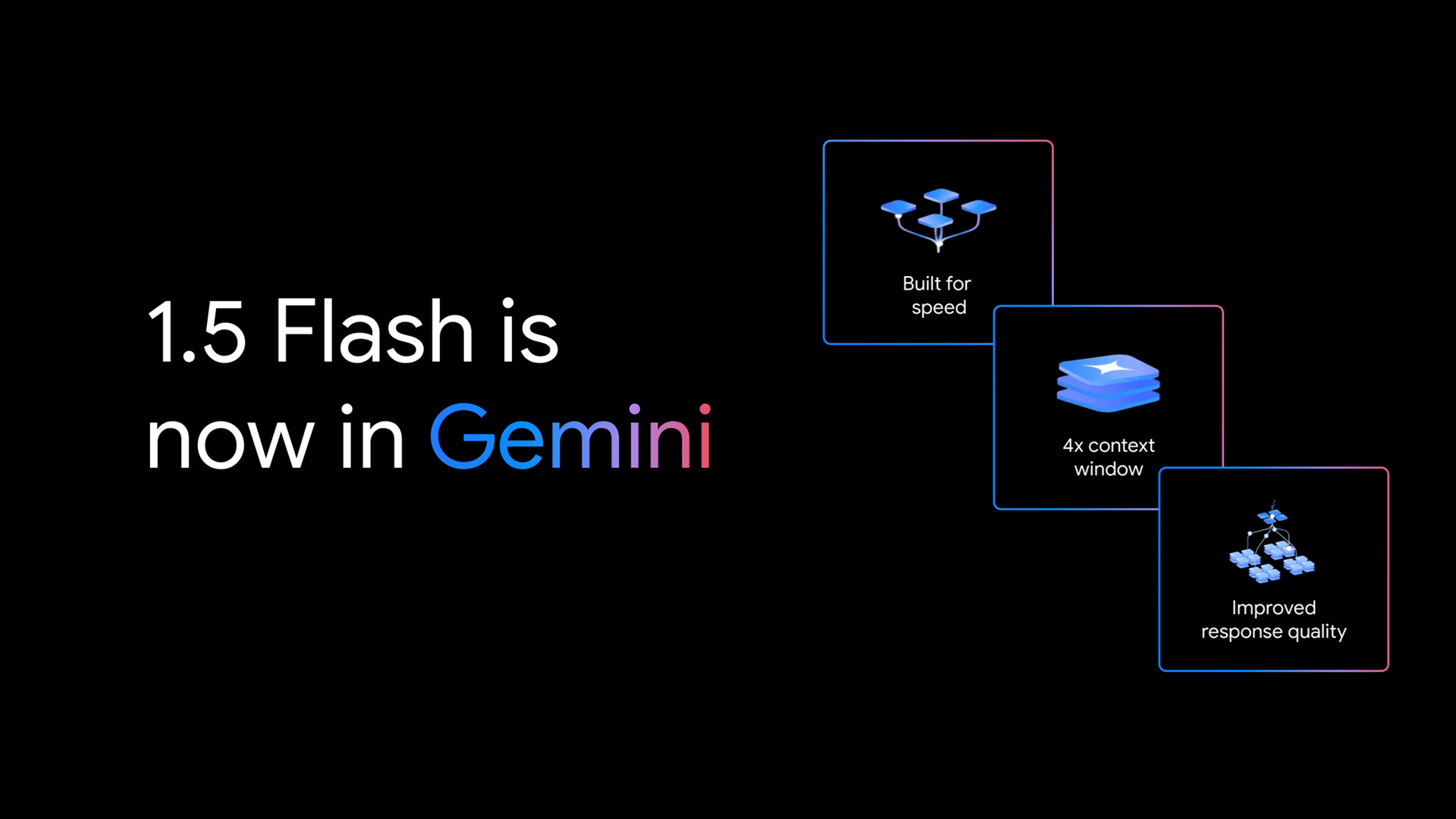The best version of Google Gemini is now out for more people, teens included
New features fight AI hallucinations and make Gemini for teens more available

Google has upgraded its Gemini AI platform to be faster and more accurate by making the Gemini 1.5 Flash large language model (LLM) to more users and rolling out a handful of new features.
The updated Gemini aims to entice a broader set of users, including many who might experience Gemini for the first time, thanks to its new integration with various Google platforms and expansion across more countries.
The Gemini 1.5 Flash LLM has been accessible to a limited number of users who have subscribed and paid for Gemini Advanced for some time, but it is now available to anyone using Gemini. You'll now have access to the newer LLM, which is faster than its siblings in the Gemini family, and Google claims it’s even better at understanding images.
The AI chatbot is also multiplying the size of its context window from four to 32,000 tokens, allowing much longer and more complex conversations with Gemini. The larger window also sets up the free tier of Gemini for Google’s plan to add the ability to upload files to Gemini from Google Drive or your device, another Gemini Advanced feature.
“That means you’ll be able to do things like upload your economics study guide and ask Gemini to create practice questions,” Google explained in its announcement. “Gemini will also soon be able to analyze data files for you, allowing you to uncover insights and visualize them through charts and graphics.”
To be helpful for that kind of academic work, Gemini needs to avoid or otherwise defeat the ever-present hazard of AI hallucinations. Studying when you’re unsure if the AI has produced correct or potentially misleading answers isn’t ideal, so that's why Google added the double-check feature to Gemini a while back, which uses Google Search to verify accuracy.
To mitigate this problem, Gemini will now display links to relevant content online, citing its sources when asked for facts. The idea is to make it easy for users to widen their search or confirm what Gemini says by clicking on links to appropriate websites. The feature is initially available for English language prompts and will even include inline links to relevant emails when a Gemini user has the Gmail extension activated. You can see how the citation feature works below. It's basically showing its work now.
Get daily insight, inspiration and deals in your inbox
Sign up for breaking news, reviews, opinion, top tech deals, and more.

Gemini Global
Google is also pushing for more people to at least experiment with Gemini in some form by widening its geographic and application availability. For the first time, Gemini is now available directly in Google Messages on some Android devices across much of Europe, including the UK, Switzerland, and the entire European Economic Area (EEA). There are also new language options tailored for the continent, including French, Polish, and Spanish.
The same goes for the Gemini experience Google designed for teenagers, which was first announced in November. The option is expanding in a global rollout in 40 languages. Google worked with child safety and development organizations in multiple countries on this version of Gemini ahead of this release, with the end goal of encouraging teenagers to use Gemini for creative and academic work.
Teenagers who meet the minimum age requirement to have their own Google Account can use a version of Gemini with additional security policies and other safeguards. There's a teen-specific onboarding process; they'll even get an AI literacy guide before the AI chatbot becomes available.
The latest updates to Gemini reflect Google's efforts to compete with rivals like OpenAI and Meta. In this case, the selling point for Gemini 1.5 Flash is speed, with the citations and other features shoring up user demands for faster accuracy and reliability.
As AI continues to evolve, the balance between speed, accuracy, and accessibility will be crucial. Google clearly wants to strike a perfect balance, but there's no such thing when each week sees AI models and products evolve further.
You might also like

Eric Hal Schwartz is a freelance writer for TechRadar with more than 15 years of experience covering the intersection of the world and technology. For the last five years, he served as head writer for Voicebot.ai and was on the leading edge of reporting on generative AI and large language models. He's since become an expert on the products of generative AI models, such as OpenAI’s ChatGPT, Anthropic’s Claude, Google Gemini, and every other synthetic media tool. His experience runs the gamut of media, including print, digital, broadcast, and live events. Now, he's continuing to tell the stories people want and need to hear about the rapidly evolving AI space and its impact on their lives. Eric is based in New York City.